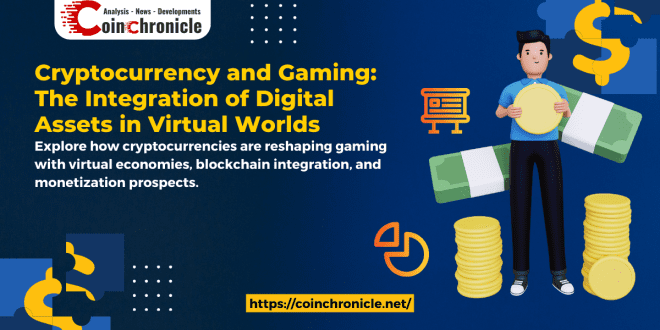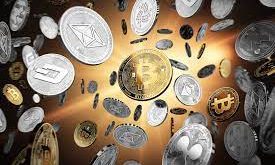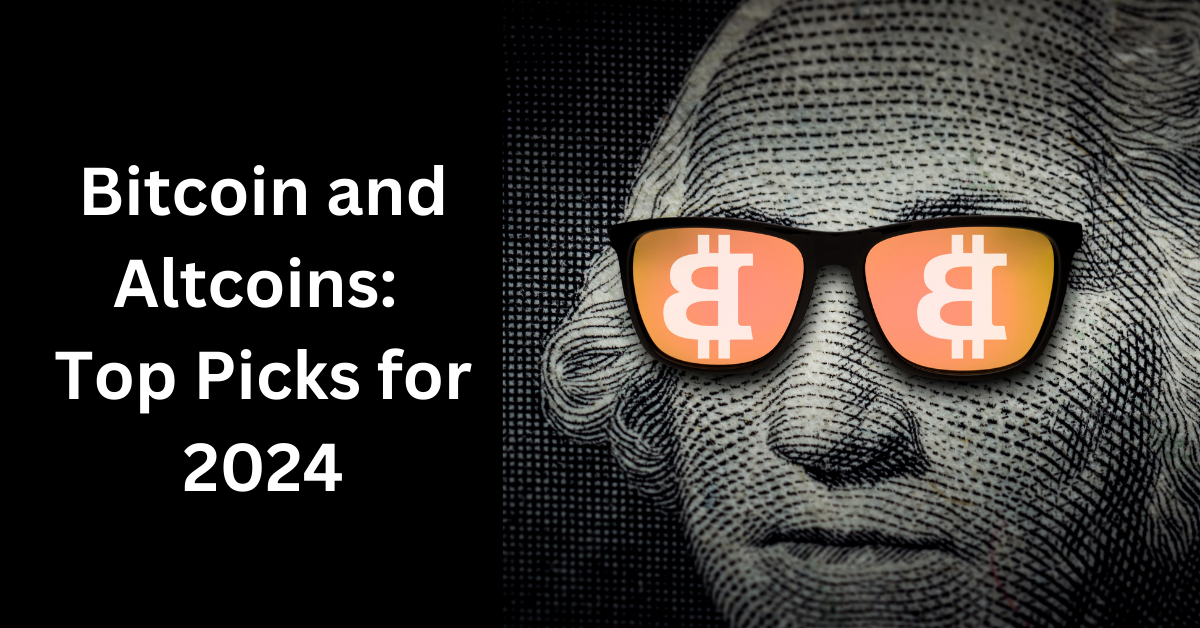Explore how cryptocurrencies are reshaping gaming with virtual economies, blockchain integration, and monetization prospects.
Understand the challenges and opportunities in this evolving landscape.In recent years, the intersection of cryptocurrency and gaming has sparked an innovative and transformative trend in the virtual world.
The integration of digital assets, such as cryptocurrencies and blockchain technology, has revolutionized the way players interact and engage with virtual economies within gaming platforms. Understanding the role of cryptocurrencies in gaming, the development of virtual economies with digital assets, and the integration of cryptocurrency into gaming platforms has become crucial for both game developers and players alike.
Furthermore, the prospect of monetizing virtual assets presents new opportunities as well as challenges. In this blog post, we will delve into the impact of cryptocurrency and blockchain on the gaming industry, exploring how these digital assets are enhancing the gameplay experience and shaping the future of virtual economies. Join us as we explore the exciting fusion of cryptocurrency and gaming, and the potential it holds for the future of virtual worlds.
Understanding Cryptocurrencies in Gaming
As the gaming industry continues to evolve, so does the concept of cryptocurrencies in gaming. With the rise of digital economies, virtual assets, and in-game purchases, the integration of cryptocurrencies has become increasingly prevalent. Understanding the role of cryptocurrencies in gaming is essential for both players and developers.
One of the key aspects of cryptocurrencies in gaming is the ability to provide a decentralized and secure payment system. Traditionally, players would use credit cards or other forms of payment to make in-game purchases. However, with the use of cryptocurrencies, the risk of fraud and identity theft is significantly reduced.
Furthermore, cryptocurrencies also offer a level of transparency and anonymity for in-game transactions. This is particularly appealing for players who value privacy and security. By using blockchain technology, gaming companies can ensure that transactions are recorded in a secure and immutable manner.
Moreover, the use of cryptocurrencies in gaming has sparked new opportunities for players to earn and trade virtual assets. In some games, players can mine or earn cryptocurrencies as they progress, allowing for a more dynamic and interactive gaming experience. Additionally, the ability to trade virtual assets with other players in a secure and transparent manner has opened up new possibilities for in-game economies.
Developing Virtual Economies with Digital Assets
Developing virtual economies with digital assets is a cutting-edge concept that is revolutionizing the gaming industry. With the rise of blockchain technology, game developers now have the ability to create virtual economies that are powered by digital assets. These digital assets can be anything from in-game items to virtual currency, and they are stored securely on the blockchain, ensuring their scarcity and authenticity.
One of the key advantages of developing virtual economies with digital assets is the ability to create truly unique and rare items that players can trade, buy, and sell. This brings a whole new level of excitement and value to the gaming experience, as players can collect and own digital assets that hold real-world value. Moreover, the use of digital assets allows for more transparent and secure transactions within the game ecosystem, as all transactions are recorded on the blockchain, making it impossible to counterfeit or manipulate.
Another aspect of developing virtual economies with digital assets is the potential for a new wave of game monetization. Game developers can create new revenue streams by offering exclusive digital assets through in-game purchases, creating a market for virtual goods that players are willing to invest in. This not only benefits the developers but also adds a whole new dimension to the gaming experience for players, as they can now invest in assets that hold real-world value.
Overall, developing virtual economies with digital assets is a game-changer for the gaming industry. It opens up new possibilities for in-game economies, player interactions, and revenue generation. As blockchain technology continues to evolve, we can expect to see even more innovative uses of digital assets in gaming, further enhancing the virtual economy landscape.
Integrating Cryptocurrency into Gaming Platforms
Integrating cryptocurrency into gaming platforms has been a hot topic in the gaming industry in recent years. With the rise of blockchain technology, developers and gamers alike are exploring the potential of using digital currencies within gaming ecosystems.
One of the key benefits of integrating cryptocurrency into gaming platforms is the ability to create a universal currency that can be used across different games and platforms. This can streamline the in-game economy and provide players with a seamless experience when purchasing virtual goods or participating in in-game transactions.
Furthermore, cryptocurrency integration can also open up new opportunities for game developers to create unique in-game economies by leveraging digital assets. This can lead to new and innovative gameplay experiences for gamers, as well as provide them with the potential to earn real-world value from their in-game activities.
However, there are also challenges that come with integrating cryptocurrency into gaming platforms, such as regulatory concerns and security risks. It is important for developers to carefully consider these factors and implement robust security measures to protect both the in-game economy and the players’ assets.
Enhancing Gameplay Experience with Blockchain
Blockchain technology has been making waves in various industries, and the gaming sector is no exception. The integration of blockchain into gaming platforms has the potential to revolutionize the gaming experience for players around the world.
By leveraging the transparency, security, and decentralization of blockchain, game developers can create a more immersive and rewarding gameplay experience. With blockchain, players can have true ownership of in-game assets, allowing them to buy, sell, and trade digital items with confidence, knowing that their transactions are secure and tamper-proof.
Moreover, the use of smart contracts in gaming can enable more complex and dynamic game mechanics, such as automatically rewarding players for achieving certain milestones or facilitating in-game governance and decision-making processes. This can lead to a more engaging and interactive gaming environment, where players have a greater sense of control and autonomy.
Overall, the incorporation of blockchain technology into gaming holds immense potential for enhancing the overall gameplay experience, offering players more autonomy, security, and transparency in their digital interactions.
Monetizing Virtual Assets: Prospects and Challenges
The rise of virtual assets in the world of gaming has opened up new opportunities for players to monetize their in-game possessions. Virtual assets, such as digital currencies, skins, and other in-game items, have become increasingly valuable in recent years, leading to the rise of a new market for buying, selling, and trading these assets. As more and more players seek to profit from their virtual possessions, the prospects and challenges of monetizing virtual assets in gaming have come to the forefront of the industry.
One of the major prospects of monetizing virtual assets in gaming is the potential for players to earn real-world money from their in-game items. With the growing popularity of blockchain technology, players can securely trade and exchange their virtual assets for cryptocurrencies or fiat currency, creating a new avenue for income generation. Additionally, the ability to monetize virtual assets can also enhance the overall gaming experience by providing players with a sense of ownership and investment in their gameplay.
However, along with the prospects, there are also significant challenges associated with monetizing virtual assets in gaming. One of the main challenges is the risk of fraud and scams in the virtual asset market. As the demand for virtual assets continues to grow, so does the potential for fraudulent activities, such as fake item sales and phishing schemes. This poses a threat to the security and trust of the virtual asset market, requiring developers and platforms to implement robust security measures to protect players’ assets.
Another challenge is the potential impact of monetizing virtual assets on the gaming industry as a whole. The commodification of in-game items has the potential to disrupt the balance and fairness of gameplay, as players with more resources may have a competitive advantage over others. This raises ethical concerns about the monetization of virtual assets and calls for regulations and guidelines to ensure a fair and enjoyable gaming environment for all players.
 Crypto Journal: Analyses, News, and Developments – Coin Chronicle Platform Coin Chronicle is your go-to source in the dynamic world of cryptocurrencies.
Crypto Journal: Analyses, News, and Developments – Coin Chronicle Platform Coin Chronicle is your go-to source in the dynamic world of cryptocurrencies.



